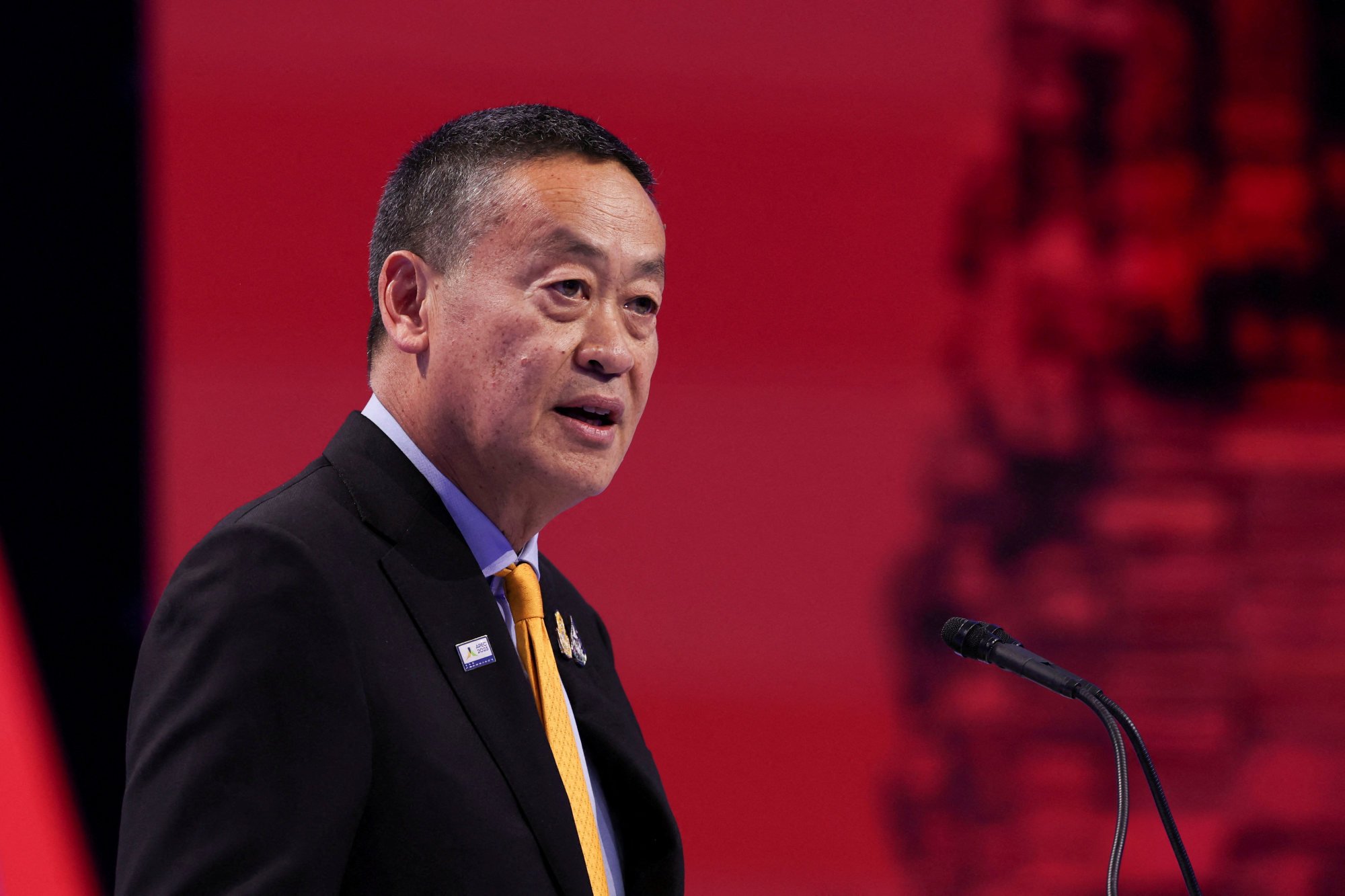Thailand accused of ‘piggybacking’ Myanmar, sidelining Asean by leading talks with junta
Greg Raymond, a senior lecturer at the Australian National University (ANU), said Thailand is prepared to “act outside of Asean official policy”, citing the visit to Bangkok in June by Myanmar’s foreign minister Than Shwe.
“So would Thailand do it again? Yes, absolutely and Asean can do nothing to stop it,” he said.
Ken Mathis Lohatepanont, a PhD student in political science at the University of Michigan, said Thailand has set a “precedent” in dealing with the Myanmar issue outside Asean’s control.
Myanmar corruption case against 2 ‘scapegoat’ generals shows cracks within junta
Myanmar corruption case against 2 ‘scapegoat’ generals shows cracks within junta
The Asean Parliamentarians for Human Rights Group described Thailand’s informal meetings with the junta as “a betrayal of the Myanmar people and an affront to Asean unity”.

Military connections
Given the close ties between the Thai military and the junta and both sides’ “tolerance of authoritarianism”, it is not surprising that Thailand aspires “to work outside of Asean” on the Myanmar issue, ANU’s Raymond said.
Following the 2014 army-led coup in Thailand, the kingdom’s top military officers received messages of support from Myanmar General Min Aung Hlaing.
Forced out of Myanmar ‘like dogs’, Rohingya refugees face persecution in India
Forced out of Myanmar ‘like dogs’, Rohingya refugees face persecution in India
But the two neighbours’ support for each other had given the impression that Thailand was “willing to piggyback the Myanmar regime”, he added.
Since Srettha had joined forces with those who supported past coups in Thailand, his government “might not care to push the democratic agenda” in Myanmar, Pavin said.
During the Thai general election in May, Srettha’s Pheu Thai party repeatedly said it would not form a coalition with the Palang Pracharat and United Thai Nation parties, both of which are stoutly pro-military.
Another key concern for Thailand regarding Myanmar is the impact on bilateral trade, particularly as its neighbour supplies about 15 per cent of its natural gas.
In 2021, Thailand accounted for 40 per cent of Myanmar’s trade value of US$$5.117 billion, but the recent escalation of conflicts between the Myanmar military and ethnic armed organisations (EAO) is said to have deterred Thai investors from further investments.
The EAOs control significant tracts of territory in Myanmar and provide administration and other services to large populations.
Could Myanmar’s military be deposed by armed groups fighting across the country?
Could Myanmar’s military be deposed by armed groups fighting across the country?
ANU’s Raymond said that with the weakening of control over border regions, especially those close to Thailand, Bangkok’s outreach to Naypyidaw might not help in reducing the flow of drugs or refugees.
“The Thai government will have to engage with some of the EAOs, including in the Shan, Wa and Kayin regions,” Raymond said, noting that Thailand has significant investments in and imports gas from Myanmar.
“It wants to protect these,” he said.
In late October, the Three Brotherhood Alliance in northern Shan, comprising the Myanmar National Democratic Alliance Army, the Ta’ang National Liberation Army, and the Arakan Army, launched a successful offensive against the junta. The alliance said last week it had seized 422 bases and seven towns from Myanmar’s army since October 27.
Earlier this month, both countries agreed to create a task force to boost humanitarian help to people displaced by the fighting and said they could expand their cooperation to include aid agencies.
“This is not the first time Thailand voiced concern about these [border] issues”, Kyoto University’s Pavin said.
Continuous instability at the border regions would have a “lasting” impact on bilateral relations, he added.
It would appear that even if Asean was in the driver’s seat for any breakthrough solutions on Myanmar, Thailand would also want to pursue its own interests, the analysts indicated.
Expect more of such lines of engagement as the junta digs in.



 Play Slots, Мотор casino games and more
Play Slots, Мотор casino games and more